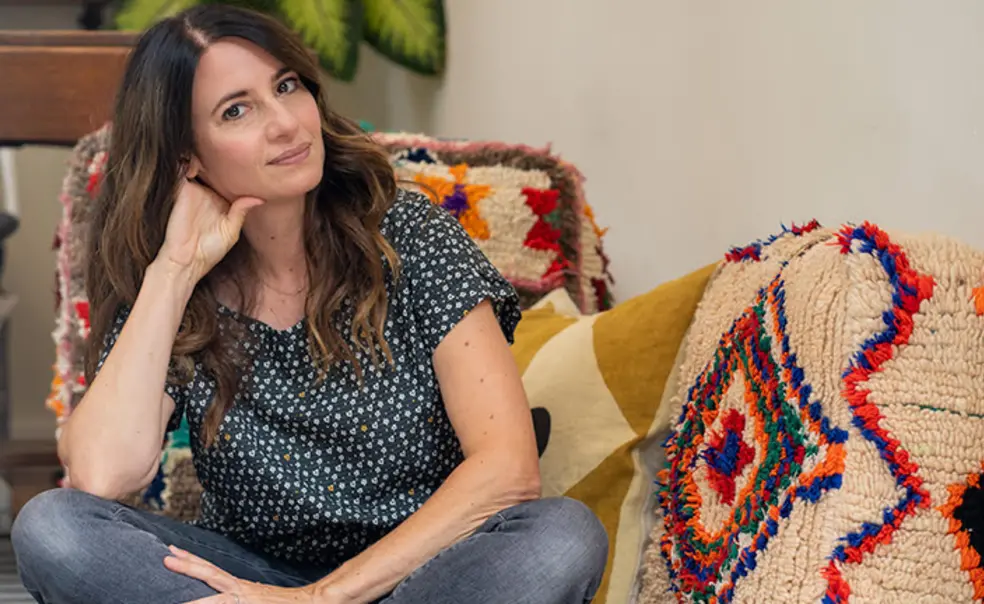Julia Storm ’96 Is Helping Parents Navigate Screen Time
‘I advise parents to do a little less lecturing and a little more asking,’ Storm says
Julia Storm ’96 became pregnant with her first child at the same time Apple introduced its brainchild — the iPhone — to the world. As a producer in children’s media and a new mom, Storm began seeking advice for how to navigate the changing tech landscape as a family.
Now, Storm shares the lessons she has learned through ReConnect, a company she founded in 2017 with the goal of equipping parents to foster a “whole-child and whole-family approach to preparing kids for life in the digital age.”
Storm has a background in film and television production and a master’s in television directing and producing from UCLA. She previously worked as director of production at the Mother Company, which creates family-friendly television and other media, and has worked in post production on various shows. In the world of children’s entertainment, Storm witnessed the dual power of media to either teach valuable skills or serve as “junk food.”
As her own children grew up, Storm saw firsthand the acute hold that screens and the personalized algorithms used by social media companies have on kids. “I started to notice this intense attraction that my child had to my brand-new phone. And I started to look around and notice this was happening everywhere. All these babies and children were starting to scroll on their parents’ phones,” says Storm. Wondering what effect this screen time had on children, Storm set out to research the issue for her own benefit. She found that, while plenty of social scientists at the time were studying the attention economy, resources and support for parents were limited.
“I became fascinated about this topic and decided to leave my job as a producer and dug in full time to research,” says Storm. When friends and family began asking Storm for advice on the topic, she recalls, “I realized that there was a need and that I was becoming equipped to fill that need.”
ReConnect’s online courses for parents and tweens teach everything from managing screen time to online safety. For parents, ReConnect offers guidance on how to talk with children about their online experiences. Based on what she has found to be effective in research and her own family, Storm says, “I advise parents to do a little less lecturing and a little more asking.” Storm suggests parents ask with curiosity about any new apps or games their children would like to use. By focusing on questions, Storm says, parents can encourage critical thinking skills that will equip their children to make wise online choices as they grow up.
Despite recognizing the harmful potential of technology, Storm maintains a hopeful perspective. “The idea that teaching kids how to be digital citizens is just as important as what we teach them in terms of their skills offline has really taken hold, and that’s really heartening to me,” says Storm. She also foresees that the same kids who are the topic of concern today will be the best equipped to find the solutions.
“My hope is that this generation will be the ones to make tech a little bit more humane for the generations to come,” says Storm.










No responses yet